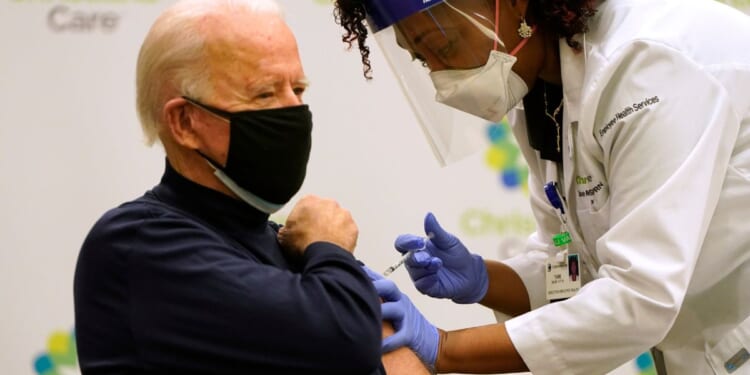Adverse reactions to COVID-19 shots were found in a massive eight-country study of 99 million vaccinated people, according to a study published Feb. 12 in the journal Vaccine.
Myocarditis — inflammation of the heart muscle — and pericarditis — inflammation of the sac surrounding the heart — showed statistically significant higher adverse reactions than expected.
The international research project by the Global Vaccine Data Network was established in 2021 to see if adverse reactions to COVID-19 vaccines exceeded estimates.
The researchers analyzed negative reactions based on the types of vaccines given in four doses.
All vaccines reviewed indicated at least some higher-than-expected adverse reaction on the first dose.
Other high negative responses included Guillian-Barre syndrome, acute disseminated encephalomyelitis and cerebral venous sinus thrombosis.
Guillian-Barre syndrome is a dangerous but rare attack on the body’s nerves by the immune system.
Acute disseminated encephalomyelitis is a central nervous system inflammation that affects mainly children.
Cerebral venous sinus thrombosis is a blood clot in a vein in the brain that can cause stroke.
Did you get vaccinated?
Also, while not as high, Bell’s palsy (facial paralysis), transverse myelitis (inflammation of the spinal cord), thrombocytopenia (low platelet count), idiopathic thrombocytopenia (increased bruising and bleeding), pulmonary embolism (blood clot in a lung), splanchnic vein thrombosis (abdominal vein clotting) and various seizures in some vaccinations reflected statistically significant adverse reactions greater than anticipated.
The study credited its large sample size with providing high statistical power to its analysis and credited doing research in North and South America, Europe and Oceania with helping to provide validity to its findings.
“To date, the number of such large systematically coordinated studies across diverse geographical locations and populations is limited,” the researchers wrote.
Vaccines studied were from Pfizer, Moderna and AstraZeneca.
The research concluded with a statement that COVID vaccinations and possible adverse effects should be looked at based on risk-benefit.
“The safety signals identified in this study should be evaluated in the context of their rarity, severity, and clinical relevance,” the study said.
It also indicated that some of the adverse reactions of vaccination also can occur in COVID-19 infections.
“Overall risk-benefit evaluations of vaccination should take the risk associated with infection into account, as multiple studies demonstrated higher risk of developing the events under study, such as GBS (Guillian Barre syndrome), myocarditis, or ADEM (acute disseminated encephalomyelitis), following SARS-CoV-2 infection than vaccination,” the study said.













